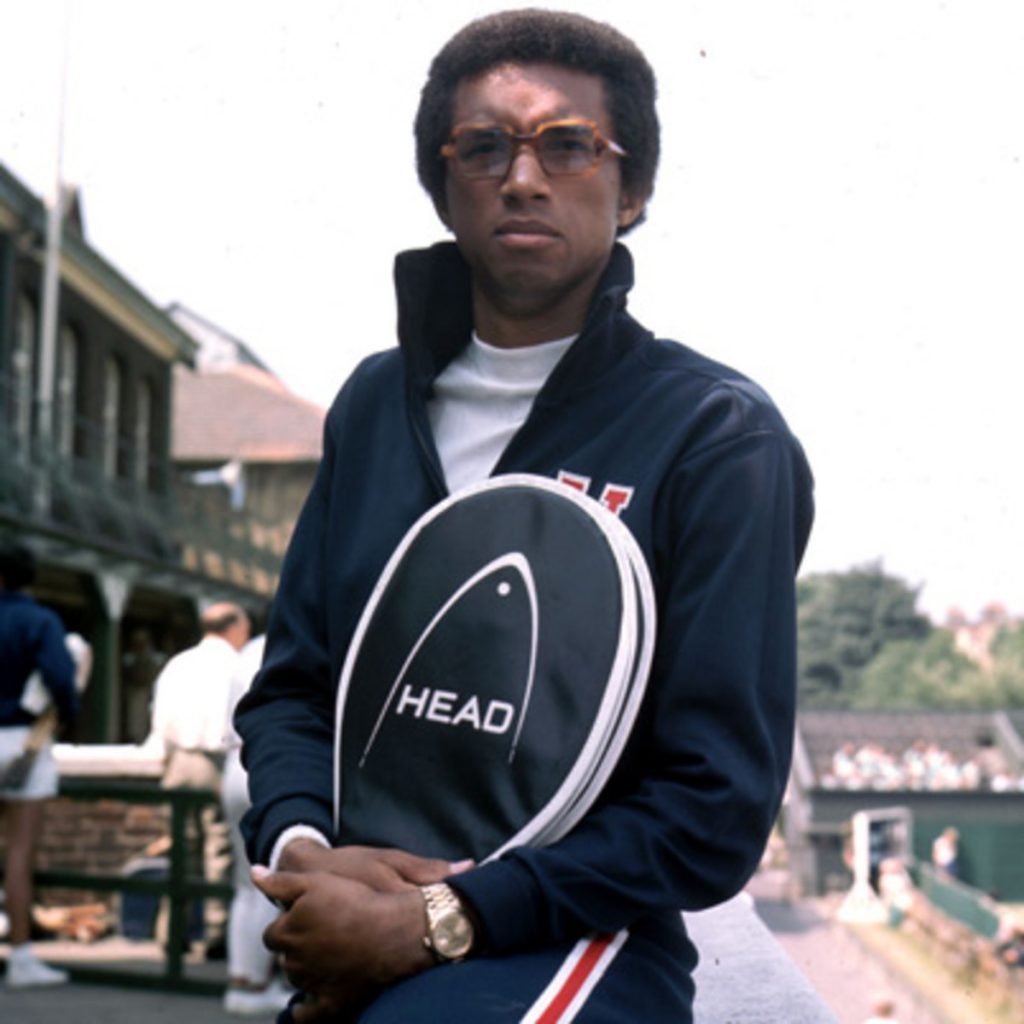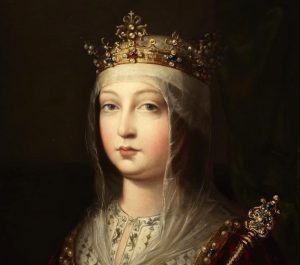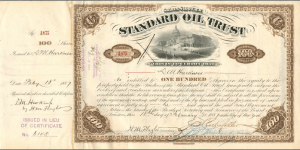Arthur Robert Ashe Jr. was born on July 10, 1943 in Richmond, Virginia. Growing up, he didn’t have the “ideal childhood.” At the age of five, his mother died from a toxemic pregnancy, which was hard for him and his family. Ashe and his siblings were raised by their father after this tragedy.1
Ashe’s father wanted for him to excel in sports. In the neighborhood he grew up in, football was the popular sport, and very popular for many African-American children. Arthur saw playing football as an outlet for dealing with the pain of his mothers’ death. He wanted to play football, but his father forbade him. His father felt that he wasn’t big enough to take action in football and was given the childhood nicknames “Skinny” or “Bones.” Arthur stressed to his father how badly he wanted to play, but the idea was continuously shut down.2
At the age of seven, Ashe found his passion for playing tennis. Every day, he would go to the tennis courts and practice from sun up to sun down. Ron Charity, the greatest African-American tennis player at the time, saw something unique in Arthur. He offered to help Ashe fine tune his game and turn him into a championship tennis player. Throughout his journey, he faced many injustices regarding his race.3

In 1973, Ashe was the first African-American tennis player to be invited to the South African Open Championship. During this time, the South African laws, known as Apartheid, separated people by culture and race. South Africa was trying to use the invitation to Arthur Ashe as a way to change its racist image in the world. Ashe agreed to play in South Africa, but only on his terms. He used this to his advantage to increase public awareness of South African racism. Following this event, Arthur Ashe played against Ilie Nastase in the Masters tennis games in Stockholm, Sweden. This match in 1975 did not go as planned. Nastase, known in tennis circles as a clown, regularly pushed the limits of players’ and officials’ patience. During his match with Ashe, he often took too much time in between serves, even after being warned. Nastase often teased his opponents on court, which he did to Ashe that day. Although Ashe and Nastase usually got along with each other, that day Ashe wasn’t willing to put up with teasing that verged on insults. Ashe put down his racket and proceeded to walk off the court. He said, “I’ve had enough. I’m at the point where I’m afraid I’ll lose control.” Although Ashe was winning, he couldn’t stand to let another person continuously call him out because of who he was. The official warned him about the consequences if he walked out, but Ashe did not care at that point. He couldn’t stand having to put up with Nastase’s nasty behavior. Late that night, the official committee met and discussed the ruling on the court. The committee knew that if they gave the match to Nastase, they would be supporting his bad, often racist behavior, which was something they did not want to do. In the end, the officials decided that Ashe won purely on the score and skill.4

In 1980, Ashe was forced to retire. Suffering from a severe foot injury plus an intense heart surgery, he found it was too much to handle. Although he did not want to retire, it was a must. Since Ashe left the courts, he assisted in the creation of the Arthur Ashe Stadium in Queens, New York. This stadium is one of the biggest tennis stadiums in the United States. All of the greatest tennis players compete here each year in the US Open.5
In September 1988, Ashe was hospitalized after experiencing paralysis in his right arm. After undergoing brain surgery and a number of tests, doctors discovered that Ashe had toxoplasmosis. This disease paralyzes its victims and is found in people infected with HIV. After undergoing a few more tests, Ashe was then diagnosed HIV positive. The doctors believed he obtained the virus from the blood transfusions he received during his heart surgery. After experiencing these tragedies, Ashe decided to open up a student Health and Wellness Center on the campus of UCLA, which he previously attended.6
On February 6, 1993, Ashe died from AIDS-related pneumonia at the age of 49. He requested to be buried right beside his mother in Richmond, Virginia. He dedicated his whole career to his mother and went down in history as one of the greatest tennis players to live.
- Eric Hall, Arthur Ashe: Tennis and Justice in the Civil Rights Era (Maryland: University Press, 2014), 1-2. ↵
- Eric Hall, Arthur Ashe: Tennis and Justice in the Civil Rights Era (Maryland: University Press, 2014), 4. ↵
- Eric Hall, Arthur Ashe: Tennis and Justice in the Civil Rights Era (Maryland: University Press, 2014), 5. ↵
- Rachel Swarns, “Arthur Ashe and a Victory Unseen,” New York Times, 2000, 7. ↵
- David Wiggins, “Arthur Ashe, Black Athletes, and The Writings of A Hard Road to Glory,” The Journal of African American History no. 4, (2014): 379. ↵
- David Wiggins, “Arthur Ashe, Black Athletes, and The Writings of A Hard Road to Glory,” The Journal of African American History no. 4, (2014): 379. ↵



22 comments
Rebeca Escobar
Wow, I never really heard of Arther Ashe until now. It’s sad that his mother passed at a young age and that she was absent all his life. However, I am happy he grew to be such an inspiring figure and athlete, overcoming both the absence of his mother and the injustices he faced. It’s heartbreaking his legacy and athletic career was cut so short, but at least his story and legacy lives on.
Christopher Hohman
Nice article. Arthur Ashe was quite an extraordinary athlete, but it is so sad that he lost his mother at such a young age. Still though his skill can never be doubted, he was truly a great man and athlete. It is also sad that people discriminated against him because of the color of his skin, and that the organization in South Africa used him to make a racial statement. He also died so young, but he was reunited with his mother too.
Engelbert Madrid
Arthur Ashe is a great example of perseverance and courage that has influenced African Americans to stand out on anything that seemed impossible to them due to their race. Although I’ve never heard or read anything about Ashe, this article states that he was considered a great tennis player, defeating athletes and winning tournaments that were highly competitive. Because of his reputation, Ashe left a legacy to many young tennis players.
Honoka Sasahara
I did not know the story of Arthur Ashe’s life. His life was so hard but he did not give up trying to achieve his goal, which greatly moved me. He is honestly one of the greatest tennis players in the history. I respect him who changed not only the rule of tennis at his time but also thinking of others by his strong, sincere belief.
Nathalie Herrera
I had not heard the story of Arthur Ashe before, but his story is truly an inspiring one. Despite the difficulties he endured within his early childhood wich was the death of his mother, he still left a name for himself. The great accomplishments he achieved were dedicated to his mother and he has left a great legacy behind him.
Alexis Martinez
Before reading this I did not know who Arthur Ashe was but I think this article did a great job of telling his story. He really is an inspiration because he stood up for himself and he refused to do things the way people thought he should do them. He took people’s negative comments and criticism and he continued to thrive. It’s disheartening to hear that an injury prevented him from continuing, but his legacy still lives on and continues to inspire people.
Marlene Lozano
I did not know who Arthur Ashe was before reading this article. His story is truly inspiring because he was the first African American to play tennis. I loved how this article was written it was very informative for someone that does not keep up with tennis. It is amazing how brave he was for standing up and continuing to do what he loved even though there were negative comments about him. Overall this was a great article.
Cristina Cabello
I had know idea who Arthur Ashe was until I read this article. It takes a lot of courage to fight for something that you are passionate about. Even when your dreams seem to be a little too hard to encounter. I find it really interesting to read about these stories. I believe that you did a very good job at giving Arthur Ashe the attention that he deserves.
Noah Laing
This story of Arthur Ashe was heroic and intriguing due to his accomplishments while fighting oppression. He has certainly left an impact on the sport of tennis and served as a role model too many. He seems like a confident individual who stood up for what he believed in and did it with an abundance of pride.
Auroara-Juhl Nikkels
Previous to reading your article, I had no idea who Arthur Ashe was. But I was not surprised because I do not follow sports or sports history. That being said, your article was very well written and informative. It was easy for me to stay engaged in your article the whole time. I think that we should make more of an effort to applaud those who were first. Because it is those first few who tend to make all the difference in the world.They show us that it is possible to do almost anything that you set your mind to.